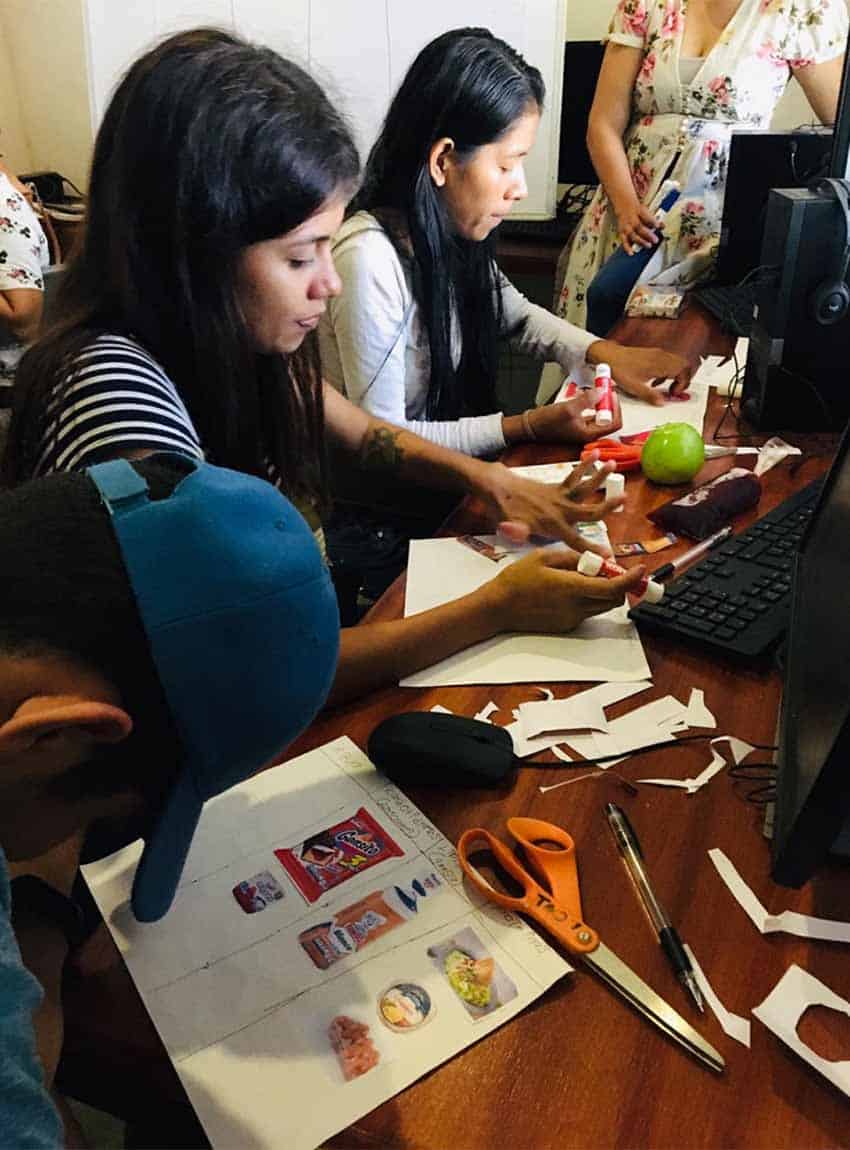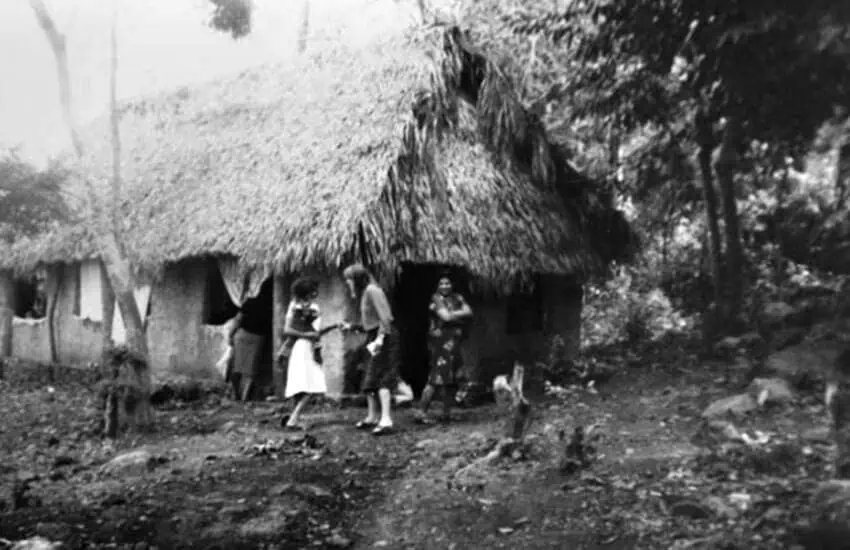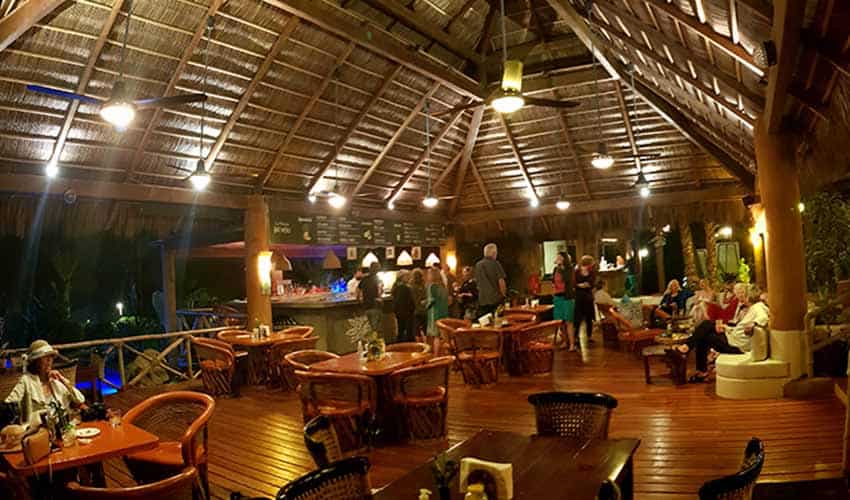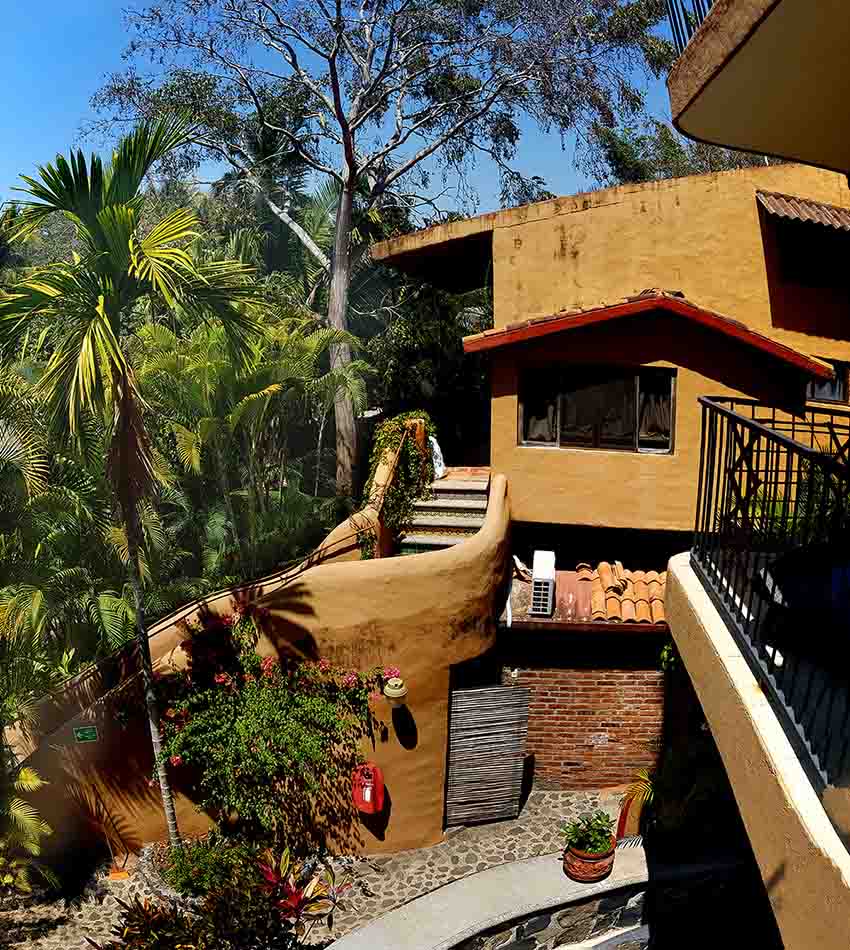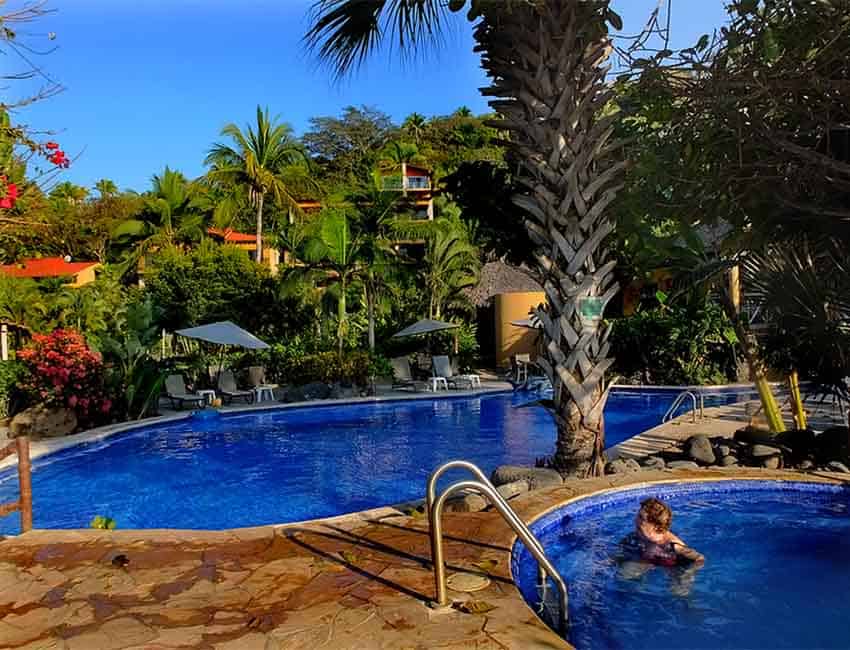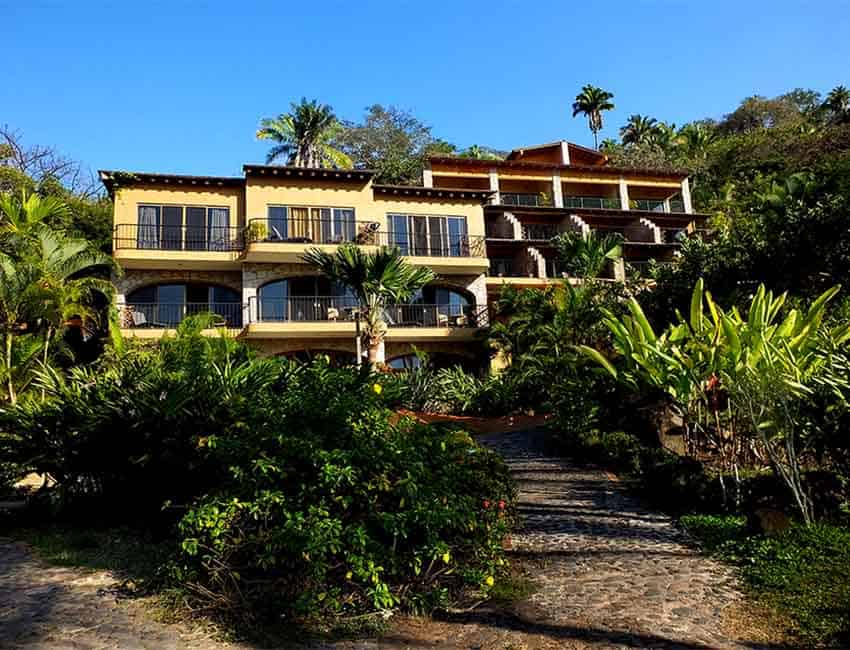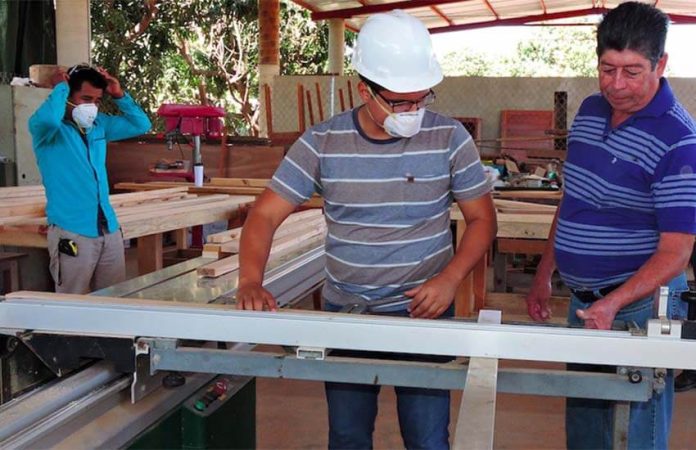I started out looking for a good hotel on the beach and ended up finding out how to make the world a better place: not bad for a weekend aimed at escaping from work!
The beach I chose was the little Bay of Chacala in the state of Nayarit, located a relatively short three-hour drive from Guadalajara.
The hotel is called Mar de Jade (Sea of Jade), well-known for its yoga and meditation classes, as well as healthy food.
That’s from the point of view of their clients. The hotel’s neighbors see Mar de Jade in quite a different light: a source of jobs and training that has given great numbers of them a new lease on life.
Among the hotel’s projects are a Waldorf-Montessori school for the Chacala village kids and vocational programs at Tao de Jade, their organic farm and training center.
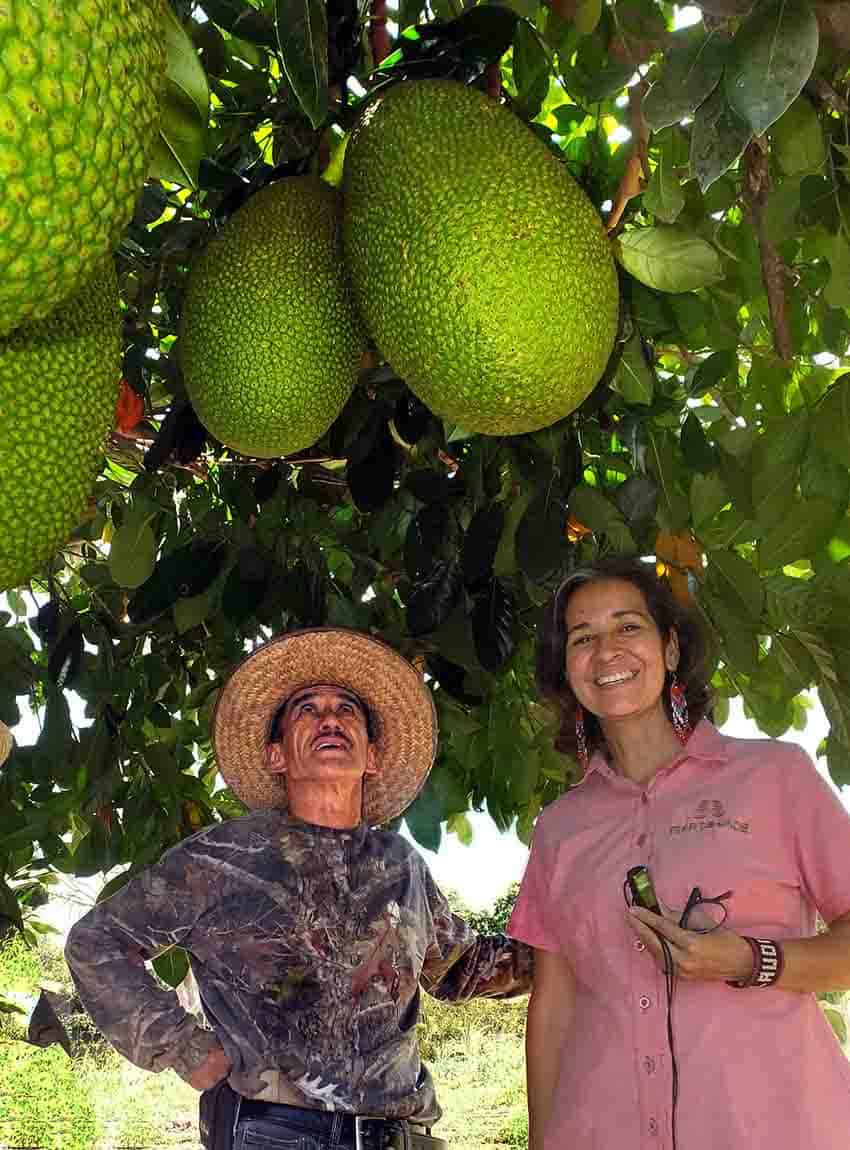
The hotel’s view on sustainability has been to make rather than buy whatever it needs. Its staff teaches youth everything from organic agriculture, maintenance and beekeeping to industrial cooking, sewing and carpentry — where, by the way, local youth produce quality furniture for the hotel as well as its curtains, bedding and all the staff uniforms.
The founder of both Mar de Jade and Tao de Jade is Dr. Laura del Valle, M.D., of Mexico City who now runs both projects with her daughter Angélica.
I asked Laura what brought her from the capital to the tiny pueblito of Chacala on the Pacific Coast.
“I was in my 20s,” she says, “doing theater and commercials, when I stumbled upon the first Japanese Rinzai Zen monk that ever came to Mexico City. I wanted to ask him about traveling in Japan, but he said, ‘Oh, you westerners are too uncouth to travel around Japan. You have to train with my wife.’ And I ended up training for 10 years with him and his wife in Zen meditation and acupuncture … and never went to Japan.
“Now, my Zen monk was a ferocious guy with a great imagination to do the impossible. In our group were a shoe salesman, an artist, an ex-Jesuit priest, a radical leftist, you name it. And he told us, ‘Mexico doesn’t need Zen — it needs protein. The Mexican people are all very much in present time. The majority of people have to be where they are at because there is no future. They’ve only got the present. They’re able to be more present than most people who study Zen. These people live in their body — they work with their hands … but they need protein.”
While the Zen monk taught the group how to plant soybeans and make tofu, del Valle studied acupuncture with the monk’s wife.
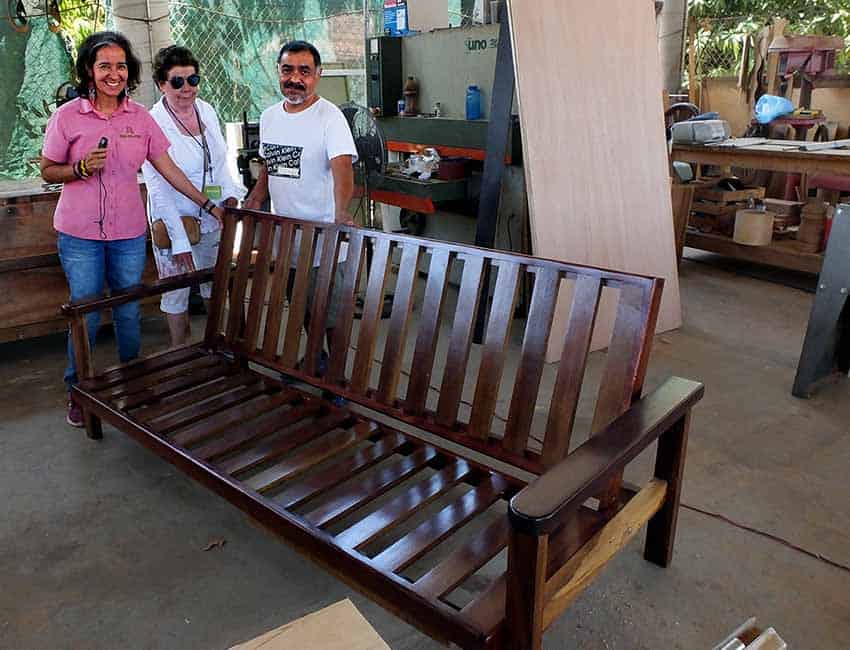
“I was amazed at what acupuncture could do,” she says, “but I realized I needed to learn anatomy. I didn’t even know what side my liver was on!”
A doctor in her group encouraged her to study medicine. “Do something for your country!” he told her.
“So I did,” says del Valle. “I enrolled at UNAM, and when I began to work with patients in Mexico City’s hospitals, I saw that many of them were country folk with terminal diseases because they had waited too long. As a result, I told myself, ‘When I graduate, I’m going to go off to the countryside to work. I want to be useful where there aren’t enough doctors, where we can deal with the basic diseases before they get too severe.’
“I realized I wouldn’t be able to live off a country doctor’s salary, so I thought I’d start a little Zendo — a Zen retreat house — on some nice beach, where people can sit around and drink carrot juice … and I ended up in Nayarít at Guayabitos beach, which was gorgeous and lush. I said, ‘This is amazing. There are mangoes falling out of the trees!’ Then they told me there was some land for sale on another beach nearby — so I went to have a look.”
In those days, it seems, there was hardly a road to reach Chacala.
“It looked just like Jurassic Park,” says del Valle. When she asked the property owner why he wasn’t developing his land, he replied, “Develop it? No, no, this is Africa! I have property in Puerto Vallarta — Why would I want to put my children into a place like Africa?”
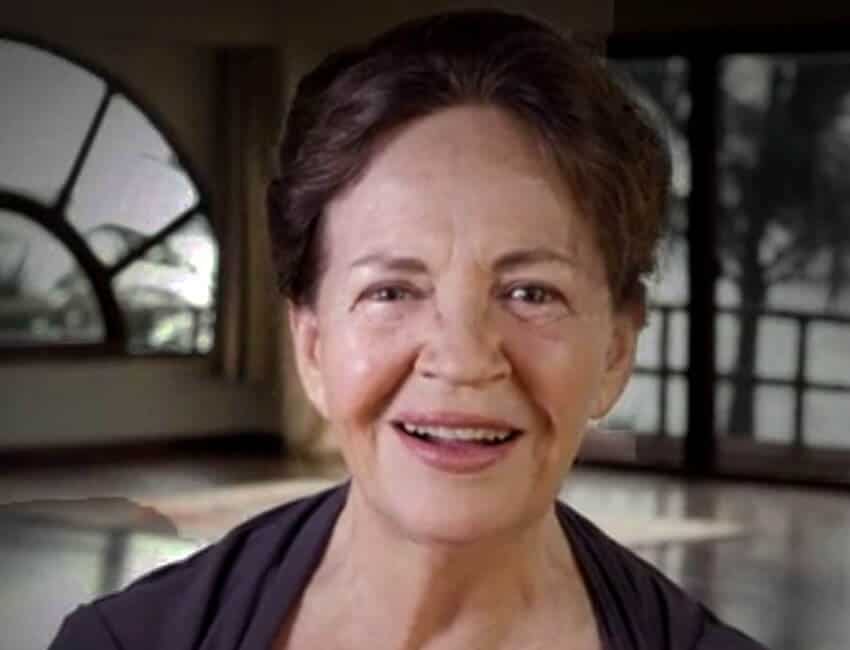
“So,” says del Valle, “I got together with my friends and my brother, and we bought this little bit of Africa. We lived in huts, we took water from the creek, we had kerosene lamps, we ate iguanas, learned to gut fish and we looked out for alacranes (scorpions) and cascabeles (rattlesnakes).”
Meanwhile, people with medical problems appeared, asking to see la señora de las agujas (the lady with the needles), and del Valle soon realized that a lot of local people simply did not have money for meds.
“What I learned over all those years,” she told me, “is that the public health disease number-one is poverty, and if you don’t address poverty, you’re just not going to change things. People go into a lot of stages of depression and violence. They have too many problems at too many levels. There’s the housing issue; you don’t have money for the school uniforms; you have to borrow money for food; the kid is in jail and you can’t pay a lawyer … I saw so many cases like that, and I said, ‘When I grow up and get old, I’m going to create work.’
“President López Obrador hit it on the nose,” del Valle says, “when he came up with ‘Poverty first — employ the youth.’ That’s what we are doing. We make everything ourselves: curtains, bedspreads, uniforms; we make our own mattresses, furniture, food preserves, you name it.”
“If you want to foster education and employment in any impoverished community,” she says, “you must understand that [young people] already have a family by the time they are 20. They are already supporting one or two kids, or they’re already helping their parents — the mother who is now alone or the father who is bedridden. They reach the age of 16 or 18 with economic responsibilities. They can’t just drop them and go off to school.”
For decades, Del Valle gave local vocational training to the people who were working with her and wanted to extend that opportunity to other youth who were unemployed and out of school.
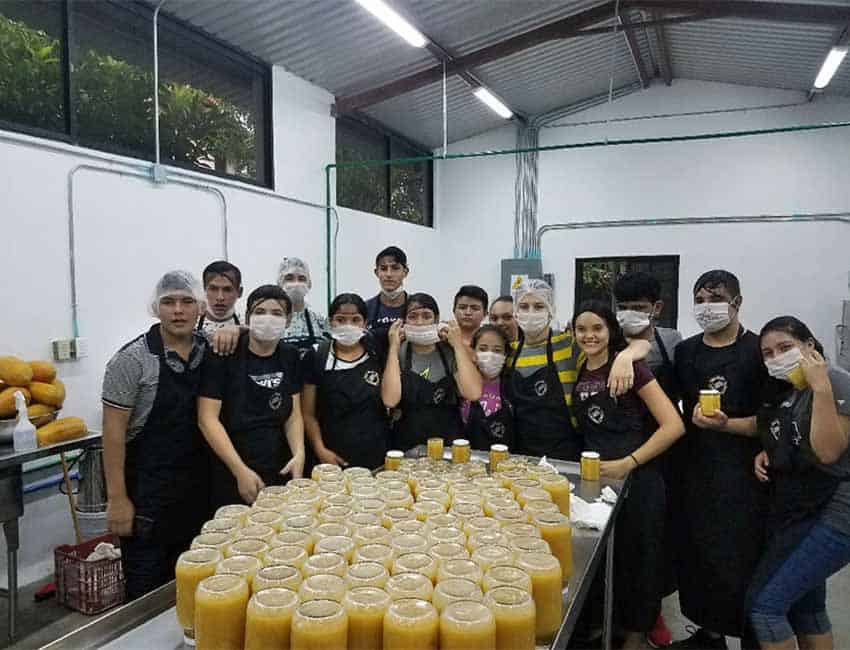
“So I started counting how many salaries that would be, and I said: ‘Oh my God, we’ve got 50 employees at Mar de Jade, and we also have the staff at our nonprofit Waldorf-Montessori school in town,'” she says. “So those are 20 other people to support, and then we’ve got 20 on staff at the farm.”
She wondered how she could afford to add another 40–50 kids to the payroll. “And then AMLO comes along, wins the election and says, ‘Business owner: if you train people for a year, I will pay each of them a salary.’
“But what happens when AMLO leaves and this program gets cut? How will I be able to train?”
With this in mind, del Valle is now working on strengthening the marketing and entrepreneurship of each trade so they can be self-sustaining and serve as a model for graduates of the trades. For instance, she decided to start a sewing club.
“I asked myself: what would sell like crazy on the coast? And I came up with uniforms: there are school uniforms, hotel uniforms, business uniforms and even festivity-day uniforms,” del Valle says. “And there is no one making uniforms in the whole county! So, before we train them to design their own pretty clothes, they learn to make what sells. That’s what we are focusing on first.”
Reflecting on all that has passed since she came to Chacala, del Valle says, “I truly enjoy seeing the youngsters we trained come back, and now they are maintenance people, they can put electricity and plumbing into a house. But before, these kids were just floating around, 20-year-olds lifting boxes of beer onto a truck or mixing cement for 12 hours. Now they’ve got an identity, you know. They’re proud of themselves. That to me is thrilling. It’s good when you are able to say, ‘I can do this. I can do this well.’ That is the happiness that I experience — it’s a great happiness!
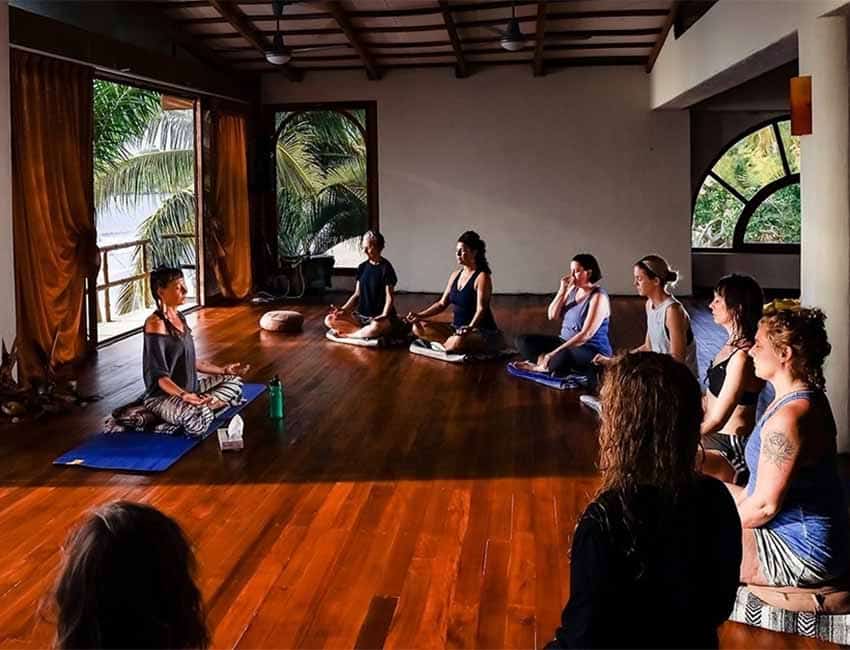
“I’d like people who come to Mar de Jade to know that it’s not just about business; it’s about humanity, the family of human beings,” she adds.
“We need to be in it, we need to love it, we need to help it. We need to reach out when someone calls.”
The writer has lived near Guadalajara, Jalisco, since 1985. His most recent book is Outdoors in Western Mexico, Volume Three. More of his writing can be found on his blog.
